Baseball History Comes Alive Now Ranked #2 by Feedspot Among All Internet Baseball History Websites and Blogs!
Guest Submissions from Our Readers Always Welcome!
Scroll Down to Read Today’s Essay
Subscribe to Baseball History Comes Alive for automatic updates (sign-up block found in right side-bar)
As a Free Bonus for subscribing, you’ll get instant access to my two Special Reports: Memorable World Series Moments and Gary’s Handy Dandy World Series Reference Guide!
“Scenes from the Career of Willie Mays” Photo Gallery
Click on any image below to see photos in full size and to start Photo Gallery:
Haha! The quote below from Leo Durocher is one of my all-time favorite baseball quotes…and it serves as a nice introduction to Bill Schaefer’s essay today. Back in 1972, Bill was a broadcaster for a local radio station in Elizabeth, NJ, and actually used a little homegrown “hutzpah” to land an interview with the great Willie Mays. I think you’ll enjoy Bill’s rendition of the story. -GL
BILL SCHAEFER’S TWENTY MINUTES WITH WILLIE MAYS
“He can hit. He can run. He can field…If he could cook, I’d marry him!” –Leo Durocher, speaking of Willie Mays
On May 11, 1972, the Mets made a trade with the San Francisco Giants to acquire Willie Mays for pitcher Charlie Williams and $50,000. The baseball legend had just recently celebrated his 41st birthday. The innocent, effervescent “Say Hey Kid” who turned the New York Giants Baseball Nation on its collective ear 21 years earlier, had belted 646 of his 660 total career homers. But maybe he still had enough left to help his new team recapture their own recent glory.

I was wearing many broadcasting hats for local radio station WJDM in Elizabeth, NJ at the time, and thought it would be cool if I could do a live phone interview with Mays on my Saturday music show, on June third. The Mets would be home for a couple of weeks, so why not? Well, logically, there were a few “why nots.” First, Willie never heard of a local announcer named Bill Schaefer. Second, he never heard of the little 500-watt radio station in north-central New Jersey.
The third was a little more complicated. Mays loved everybody when he first joined the New York Giants in late May of 1951. And everybody instantly loved him. Despite a slow start at the plate, fans just knew instinctively Mays possessed Leo Durocher’s five tools of a great player (hit, hit with power, run, throw, and field). But, as the Giants manager so perfectly put it, “He had the other magic ingredient that turns a superstar into a super Superstar – charisma. He lit up a room when he came in. He was a joy to be around.”
Then a funny thing happened when the Giants moved to the left coast in 1958 and opened the season at Seals Stadium. The fans didn’t take to the star the way they did in New York. Perhaps some of the older fans still had an allegiance to the beloved Joe DiMaggio who patrolled center field in the same spacious ballpark, with ease and brilliance, in 1935. Others may have felt a player from a big east coast city was something of an outlier, and not one of their own. They considered rookie phenom Orlando Cepeda more of a homegrown product and showered him with the affection Mays was used to receiving.
This hurt Willie. And he began to develop a small chip on his shoulder, which grew in the years to come. The Baby Bull became a great player and was Rookie of the Year in 1958. But Mays concentrated on his hitting and achieved his highest career batting average of .347 (barely losing the batting crown on the last day of the season to Richie Ashburn’s .350). Mays also led the league in runs scored (121), stolen bases with 31 (84% success), and OPS+ (165). He fielded like no other. But the fans were slow to come around.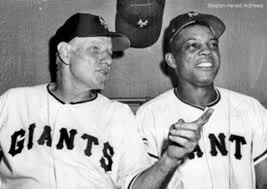
Mays encountered turbulence in his career and personal life through the ’60s and matured as a fine leader. But he also became guarded, harboring a touch of bitterness. By the time he joined the Mets, he was generally cool to the press and not inclined to give lengthy interviews. I was aware of most of this at the time but plowed ahead anyway. My first step was to call the Mets directly to find the club’s hotel headquarters. I stated my case: Sports Director for WJDM; our audience loves the Mets and Willie Mays; we want to welcome him back to NY with a live phone interview. No problem. Nice as could be. I was given the hotel phone number and immediately called their front desk.
Again, the gentleman I reached couldn’t have been more cooperative. So, I said, “Great, I’ll call the hotel a little after 10 am Saturday, and you’ll put me through to Willie Mays’ room for the interview, OK?” The clerk replied, “Yes, call then and we’ll put you right through.” All this was done with an assumptive attitude, mind you, like “no” was not an option. Oh, the boldness of youth!
Like clockwork, I called the hotel on Saturday, shortly after the news at 10, and, bang, zoom, I was suddenly talking to perhaps the greatest player of all time! Stifling an instant case of nerves, I introduced myself and thanked him for coming on for a phone interview (which he didn’t even know about!). The biggest thing I had going for me was the element of surprise. Mays was slightly bewildered and I started asking questions right and left. Twenty minutes later Mays abruptly said, “Hey man, you writin’ a book!” I forced a chuckle and blurted out, “Well, I’m a big fan of yours, Willie.” He didn’t have to hit me over the head, the interview was over. I thanked him profusely and got out of there. Our small but loyal audience loved it. WJDM General Manager, Harry Anger, said, “Very enterprising.” That was in lieu of money, of course…
The surreal event reminded me of the classic 1979 movie, Being There. Peter Sellers had created the unforgettable character, Chauncey Gardener (Chance), who, in the final scene, walks on water. There was nothing spiritual about it. The simple-minded Chance simply did not know the laws of physics wouldn’t allow a creature of Earth to walk on water. I did not think for one split second that I would not have an interview with Willie Mays.
Emboldened, I executed the same plan with, Rusty Staub, the following Saturday. He answered groggily and was barely coherent. After four minutes of mumbled answers, I politely ended the interview. I have a hunch “Le Grande Orange” had a few choice words for the front desk later that day!
If you haven’t already, please read Gary Livacari’s perfect 90th Birthday Tribute to Willie Mays, which appeared on the website, May 6th.
Bill Schaefer
Subscribe to our website, “Baseball History Comes Alive!” with over 1100 fully categorized baseball essays and photo galleries, now surpassing the half-million hits mark at 680K hits: www.baseballhistorycomesalive.com
Add your name to the petition to help get Gil Hodges elected to the Hall of Fame (with voting now postponed until December 2021): https://wp.me/P7a04E-57h
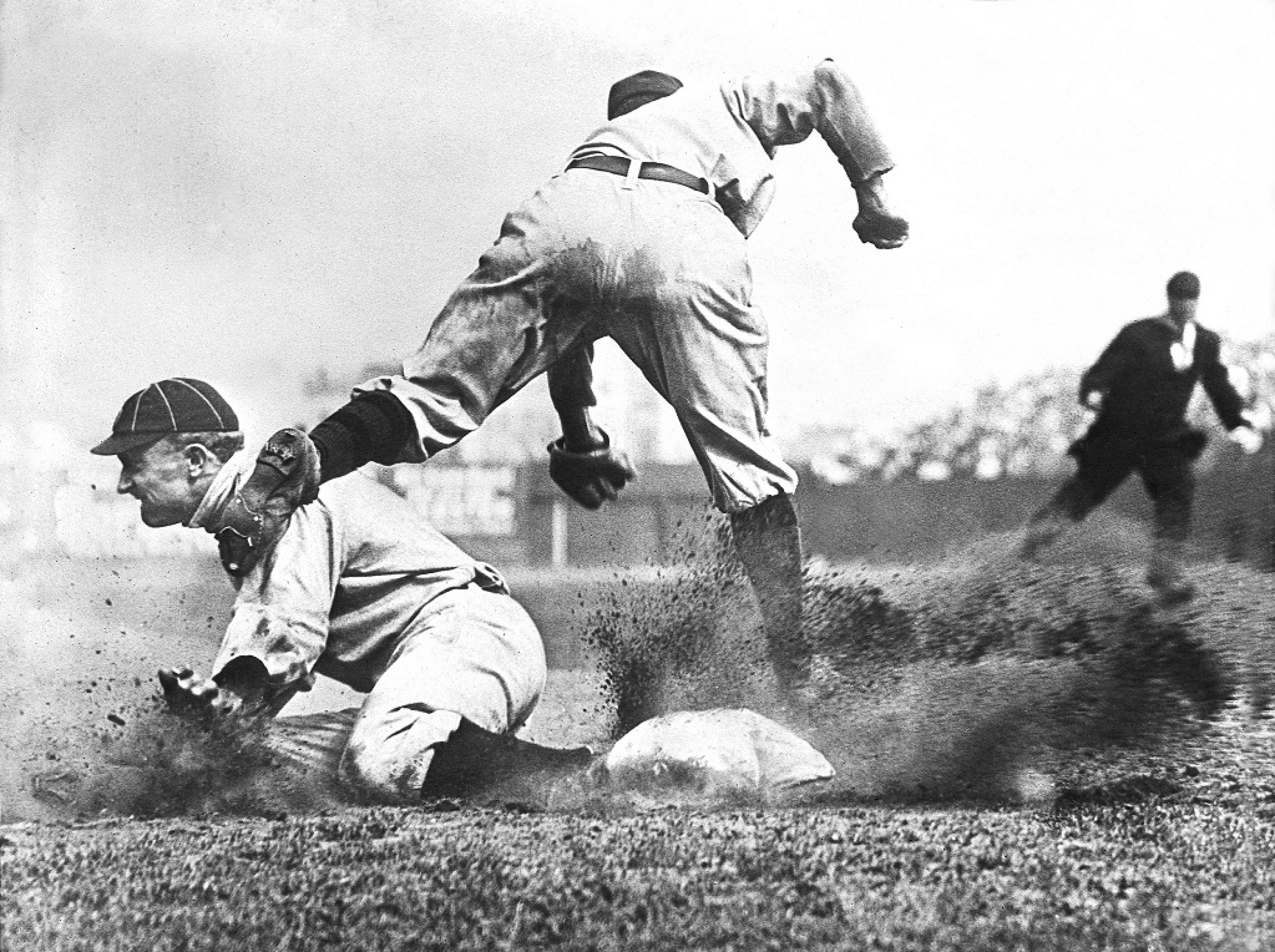
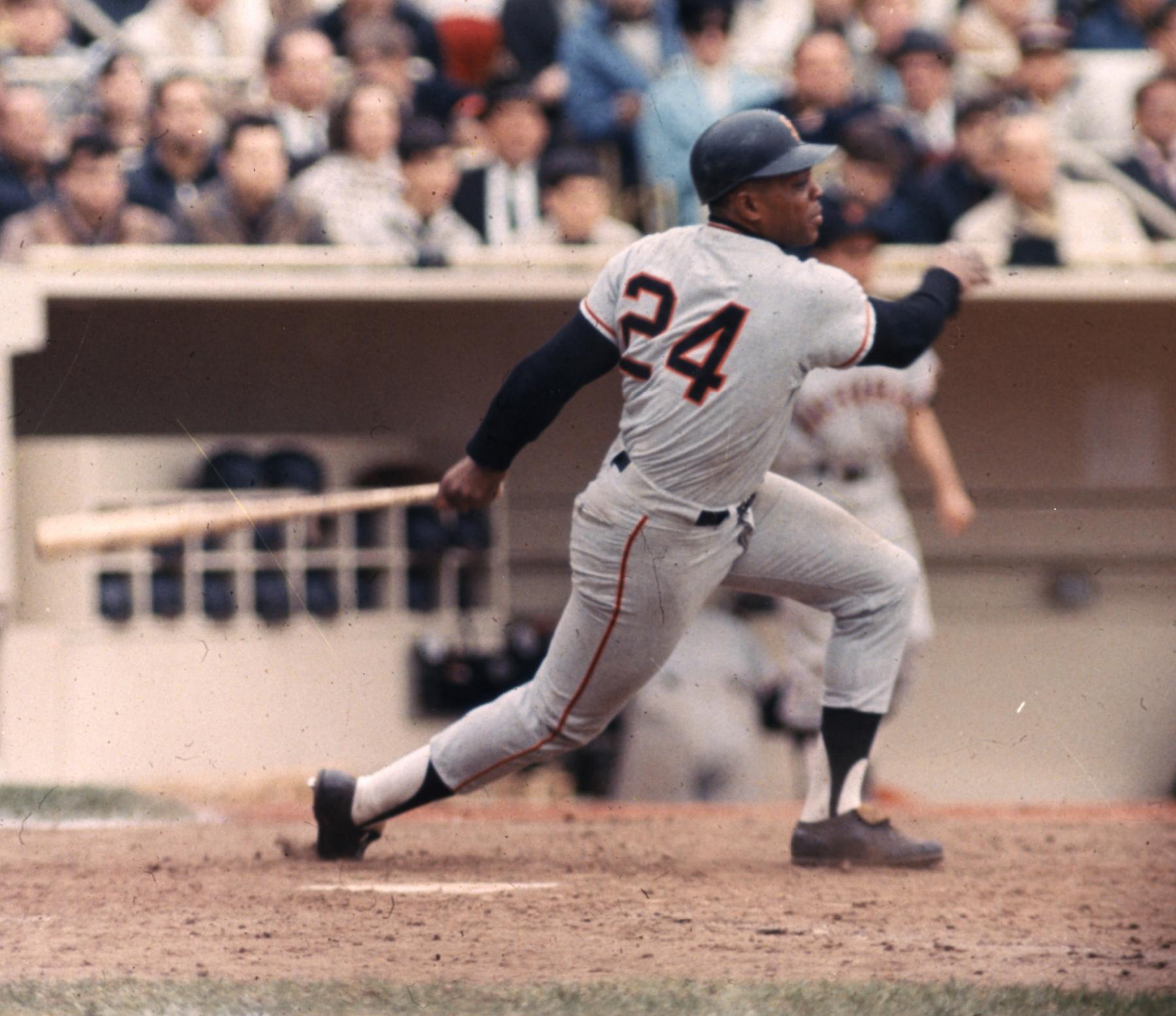
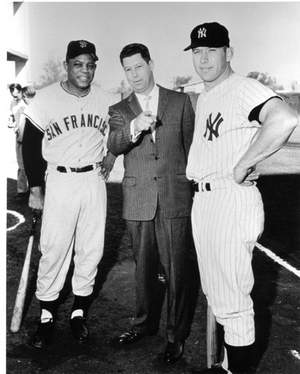
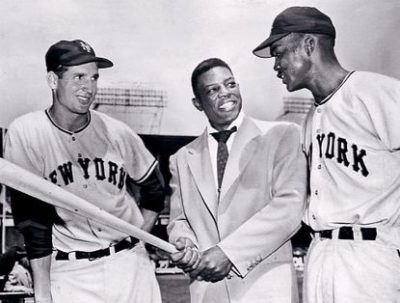
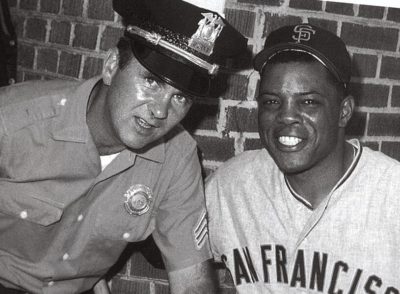
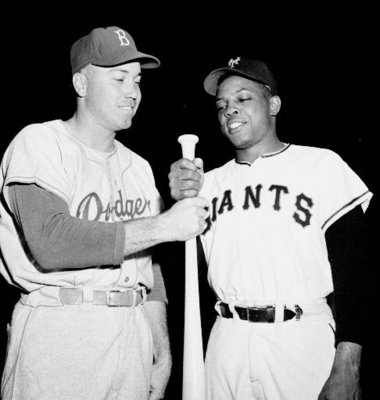
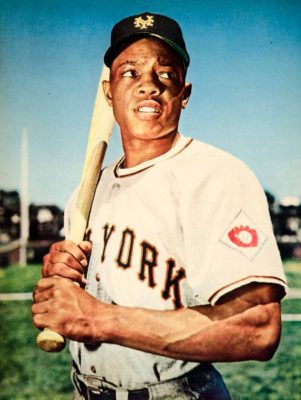
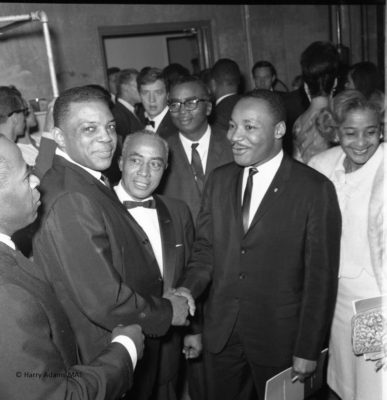
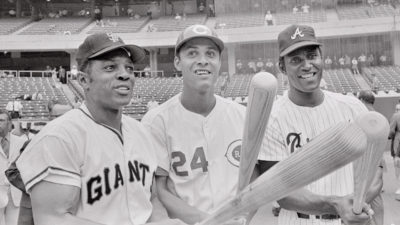
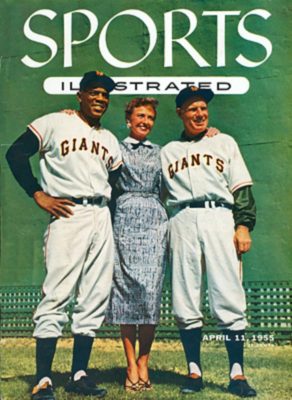
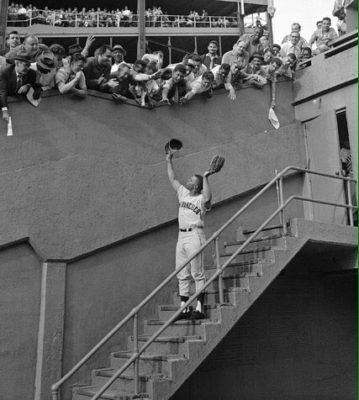
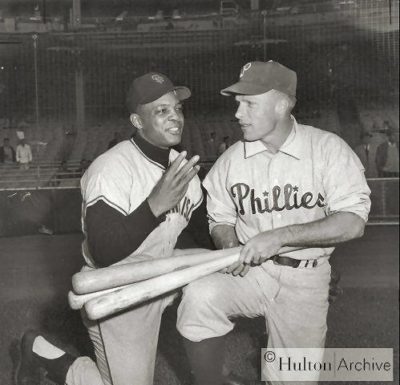
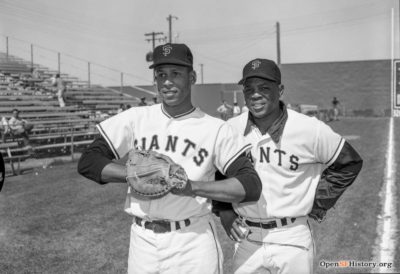
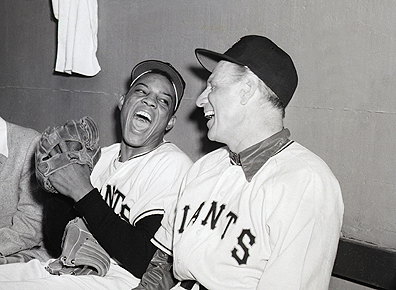
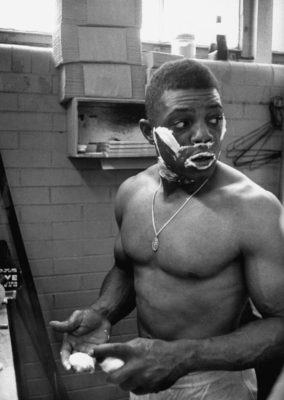
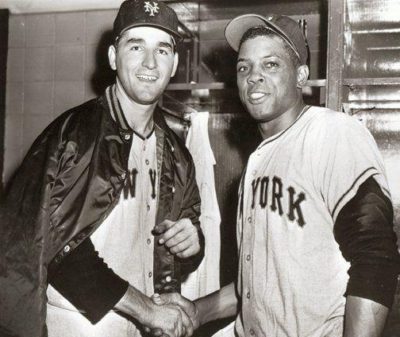
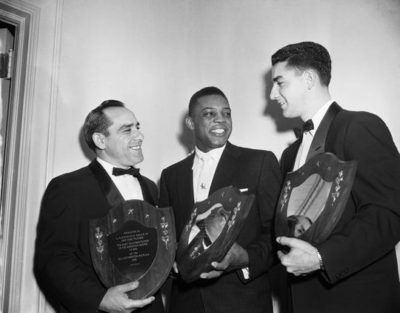
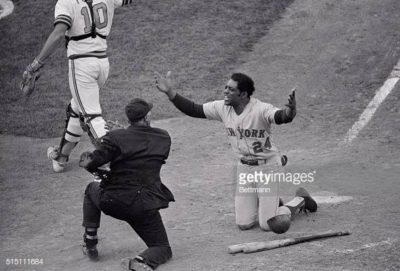
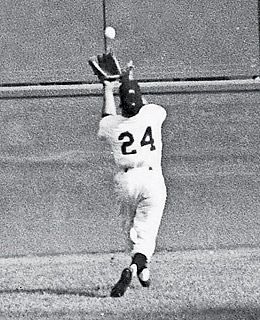
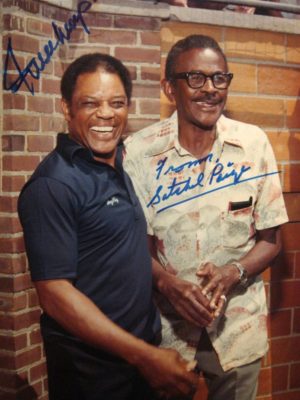
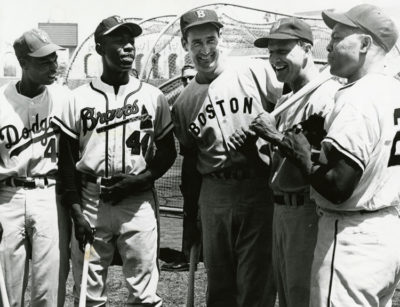
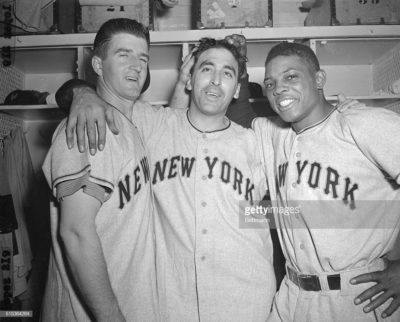
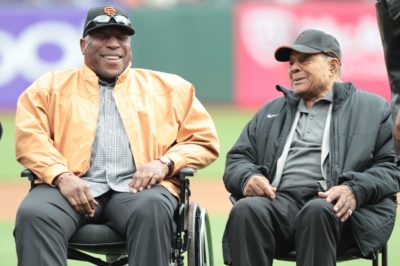
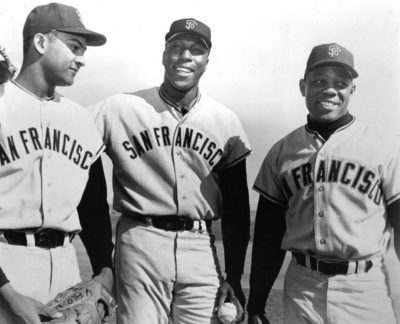
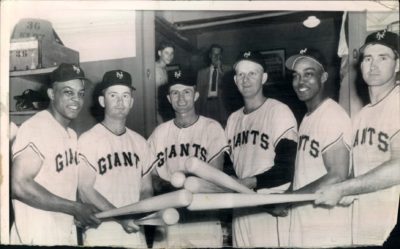
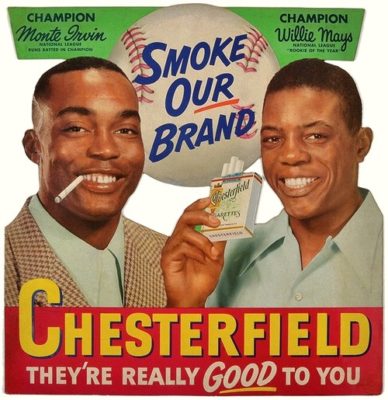
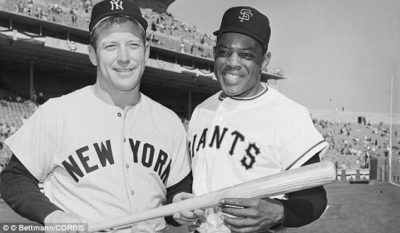
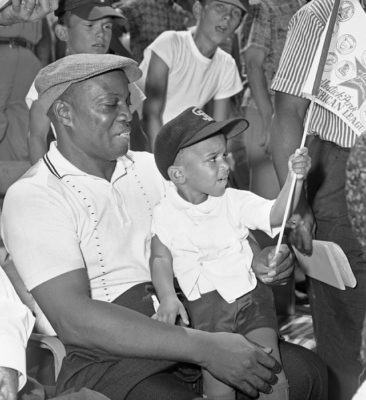
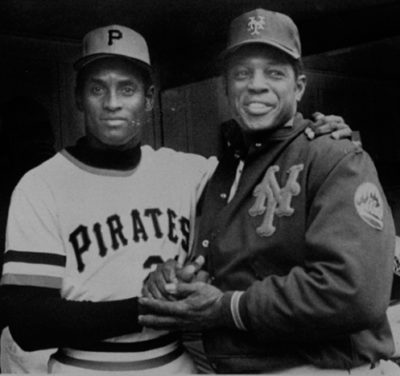
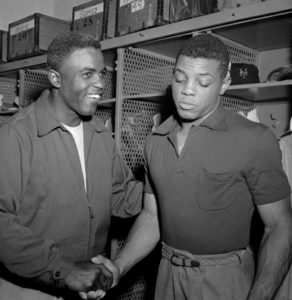
Great story, Bill.
I loved “Being There”.
Chauncey Gardner communicated to the Shirley McLaine character in one of the more hilarious scenes as she tried to become amorous with him,
“I like to watch”
It turned a contact sport into a viewing habit. LOL.
I love the “Being There” connection too. Great flick!
Hi Bill,
Congratulations on another worthy contribution! It may be another day at the office for an old radio guy, but you’ve got a superb “voice” for taking the listener/reader a half-century back in time. Dr. Livacari owes you much more than a “very enterprising” attaboy — but just try to get it!
Hmmm. . .did you possibly ever spend any time at the microphone with The Great Gil Hodges? I just was wondering. If he, too were “cool to the press,” or groggy, (rusty) and incoherent, that would come as a slight surprise.
Many thanks for such a descriptive and entertaining account of “being there” with the Say-Hey Kid at the end of his fabulous career. I don’t even care if he couldn’t find his way around a kitchen.
Regards,
Michael
Thanks Michael…Just think if he could cook!
Great story Bill! I met Rusty Staub and he was a good guy too even if you could not engage him in conversation!
Best,
Mark
I love the story Billy. I highly recommend Steve Treder’s new Horace Stoneham biography, “Forty Years a Giant.” Great Mays info in the book. It’s a MUST for Giant fans like you Bill.
Let’s hope Stoneham gets elected into the Hall of Fame. If O’Malley is in, Stoneham should be there also!
James,
Stoneham, Branch Rickey and Pants Rowland were the only three that took the postwar rumblings of the Pacific Coast League becoming a third major league seriously.
It’s interesting to ponder what would have happened if the Dodgers and Giants stayed in New York.
Pants Rowland is one of the others who should be in the HOF for his contributions to the game as World Series winning manager, long tenure as umpire and executive with Cubs along with his running the Pacific Coast League .His story is grist for the baseball biography mill.
I think about that “what if” (Giants & Dodgers staying in NY) all the time. The Griffith family would have moved the Senators to LA instead of Minneapolis and so much more ………………..
Thanks so much, you guys, for responding to the essay.
Dr. L. has a treasure trove of baseball lore wrapped up in the vast archives of Baseball History…Paul Doyle came up with another name I never heard of, Clarence “Pants” Rowland. Seems he got the nickname during his minor league days when he arrived at the park with borrowed pants that were way too big and got ribbed unmercifully by his teammates. The nickname stuck. Hilarious! And he’s also a member of the PCL Hall of Fame.
Thanks, Professor Emeritus Keedy for the accolades (in lieu of money). And, yes, I interviewed Gil Hodges out in left field at Shea early in 1969, for WOBM FM (92.7). At the time there was a rumored trade involving Wayne Garrett. I was trying to impress Hodges with my knowledge of the trade and babbled on about it. Gil finally said, “Bill, I think you know more about this trade than I do.” He was exactly the soft spoken gentleman you would expect. Super nice. I remember he liked Garrett and said, “He suits up well…he looks like a ballplayer.”
Hodges HOF? Vote YES for sure!
BTW, Peter Sellers always claimed he missed out on an Academy Award in ’79 because of the outtakes shown at the end of “Being There.” Although very funny they may have inadvertently diminished his performance in the eyes of The Academy voters.
Monte is an expert on the Westward Ho! and is probably right about Horace Stoneham. I’ll have to read the book. Unfortunately, his image for many is that of a red-faced lush who was forced into the move. I was taken in for years, until enlightened by “The World’s Greatest Baseball Fan!”
Glad to hear Staub was a good guy, Mark. He was key to the Mets ’73 run-great clutch player.